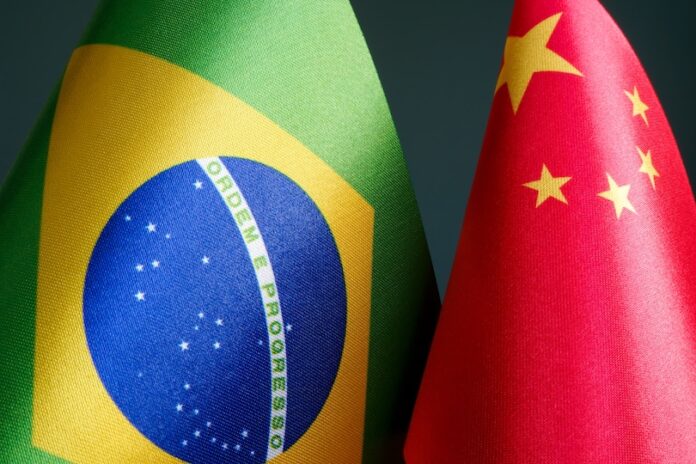In August 2024, Brazil and China celebrated the 50th anniversary of the diplomatic relations. Arguably, these are the two most important economies of the West and Eastern sides of the Global South, respectively. And even though the relations have not always been incredibly significant, in the last two decades both countries have found ways to deepen their interactions, both among private and public actors. In effect, since his return to power, early in 2023, President Lula of Brazil has sought to further strengthen ties with China. He paid a visit to the Asian giant, along with a large delegation of politicians and business executives. Bilateral ties have also undergone cultivation in additional gatherings, including the important BRICS Conference in South Africa last year. Now that Brazil will host the nineteenth meeting of Group of Twenty (G20) in Rio next month, Presidents Lula and Xi will have an opportunity to discuss the next steps on what many see one of the most promising bilateral relations in today’s complex global scenario.
After a dramatic political crisis that engulfed his country in the middle of the last decade, former metalworker turned president, Lula managed to obtain a third presidential term. Brazil continues to be deeply divided politically and ideologically, but Lula has been trying to revive a diplomatic approach that served him well during his first two terms in office: a universalist outlook that seeks to sustain good relations with traditional partners, such as the USA, while looking for ways to strengthen connections and projects with new markets, nations, and organizations. In this context, and based on Lula’s vision and diplomatic ambitions, deepening ties with China becomes central as it offers the possibility for consolidating economic relations that have helped sustain the Brazilian economy in the last two decades while also strengthening multilaterals projects aimed at reshaping the multilateral liberal order, such as the New Development Bank (NDB)
The upcoming meeting of the G20 will indeed offer an opportunity for expanding Sino-Brazilian relations. In addition to meeting in Rio, Lula and Xi will hold bilateral talks in Brasilia, and they seem eager to announce new projects in common. Though details on these are not available, it should be remembered that when he assumed the leadership role of the group about a year ago, Lula declared his intention to bring to the fore of the organization the goals of (a) reducing global hunger, (b) accelerating the energetic transition to a more sustainable model of development, and (c) of reforming the current shape of multilateral institutions, like the IMF and UNSC, so that developing nations could be better represented. In all three areas Chinese leaders could provide important political support and qualified skills. Equally, Chinese authorities have signaled Lula’s priorities for his stewardship of the G20 are aligned with President Xi’s vision for the construction of a Community for a Shared Future.
In addition to potential collaboration within the multilateral frame of the G20, Brazil and China have much else where they could strengthen ties and where new projects are potentially going to emerge. In 2023, bilateral trade reached a record of $157 billion, exceeding the combined sum of Brazil’s sales (104 billion) to the United States and the European Union. Brazil is the fourth major destination of Chinese investments abroad, representing 4.8 percent of the global total, according to the China-Brazil Business Council (CBBC). These investments have increasingly become central to goal of infrastructure modernization that Lula has sought to revive based on his Growth Acceleration Program (Programa de Aceleração do Crescimento — PAC) and the recently announced New Industry Brazil program (Nova Indústria Brasil).
There is indeed great interest in Brazil about how Chinese investments could help reindustrialize Latin America’s still largest but decreasingly smaller industrial economy. Though trade between the two countries has grown 35 times in the last 23 year, there is an unbalance between the types of items exported from each side – mostly primary from Brazil to China and mostly industrialized from China to Brazil. Lula has stated that he would like to change that, and Chinese authorities has signaled to be open to discuss the issue. High-ranking…
–>




